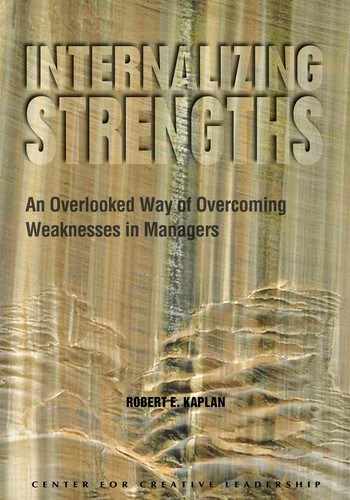0%
13Chapters
0-1Hours read
0kTotal Words
Book Description
Because executives tend to be problem solvers, they typically focus on weaknesses when they want to improve their performance. This approach can be helpful but there is another that can be just as effective: recognizing strengths. A senior manager whom the author interviewed said this about a top person: "If he saw his own strengths and internalized them, a lot of his weaknesses would go away." In this report, the author explains why it is critical to recognize strengths in order to improve performance and why it is often difficult to get that notion across to executives. For practicing managers and those who develop them, this report offers sound but often neglected developmental principles for overcoming weaknesses.Table of Contents
- Cover
- Title Page
- Copyright
- Table of Contents
- Preface
- Acknowledgments
- Introduction
- How the Failure to Recognize Strengths Affects Executive Performance
- Why Talking to Executives About Their Strengths Can Be Difficult
- What Can Be Gained from Internalizing One’s Strengths
- How to Help Executives Use Strengths for Development
